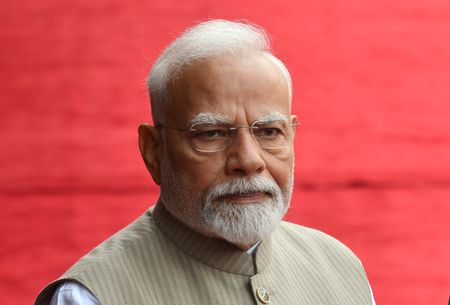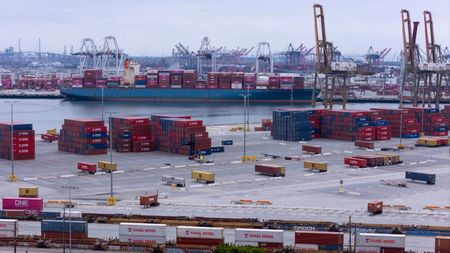LONDON (Reuters) – British Prime Minister Keir Starmer said on Monday he would end the country’s “failed experiment in open borders” with a sweeping set of reforms to significantly drive down net migration.
Below is a summary of the main changes:
NET MIGRATION NUMBERS
Starmer said he would not set a target for the reduction in net migration, though his government has said in a policy document that the changes could reduce the number of people arriving by around 100,000 per year.
A government official said the fall in the number of people could be larger, particularly if the government decides to take additional steps to reduce immigration.
CITIZENSHIP
Immigrants to Britain will need to spend 10 years in the country, up from five years currently, before they get the automatic right to apply for an indefinite “leave to remain” or full citizenship.
Individuals who can demonstrate their “contribution to the economy or society” will be allowed to apply sooner.
The government will consult before deciding when the changes come into force and whether they will apply to immigrants already in Britain or only to new arrivals.
CLOSURE OF CARE SECTOR ROUTE
The government said the overseas recruitment of care workers would end, a move that will add to pressure on a sector already grappling with chronic staff shortages.
In the policy paper, the government said there would be a “transition period” until 2028 during which existing visas could be extended and overseas nationals in Britain could switch to a social care job.
HIGHER COSTS FOR HIRING OVERSEAS WORKERS
The government said in the policy document it would introduce a 32% increase in the so-called immigration skills charge, paid by employers when they take on someone from overseas via a skilled visa or similar route.
The current cost of the immigration skills charge is 1,000 pounds ($1,318) per worker for a large company for the first year, and 364 pounds for worker for a small company.
The government said the cost has not been increased since 2017, so the rise is in line with inflation.
STUDENTS
International students will still be able to work in Britain after they graduate but only for 18 months, down from two years currently.
The government said it would explore introducing a levy on higher education providers’ income from tuition fees from international students.
While no final decision has been made, the policy paper modelled a 6% levy on tuition fees and said this could increase the cost of coming to studying in Britain if passed on.
ENGLISH LANGUAGE
The government said there would be tougher English language requirements for visa routes.
Adult dependents who come with arriving workers or students will need to show basic English skills to get visas.
ASYLUM SEEKERS
While Monday’s statement focussed on reducing legal migration, the government said it would look to bring in new legislation to make it easier to remove some asylum seekers.
The government said it would introduce legislation to limit asylum seekers’ use of Article 8 of the European Convention on Human Rights – which protects the right to a family – so fewer cases are treated as “exceptional”.
The government said further reforms to the asylum system would be published later in the year.
($1 = 0.7588 pounds)
(Reporting by Andrew MacAskill and Alistair Smout; Editing by Gareth Jones)










